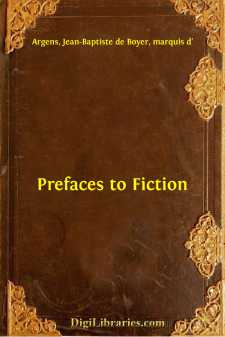Categories
- Antiques & Collectibles 13
- Architecture 36
- Art 48
- Bibles 22
- Biography & Autobiography 816
- Body, Mind & Spirit 145
- Business & Economics 28
- Children's Books 18
- Children's Fiction 14
- Computers 4
- Cooking 94
- Crafts & Hobbies 4
- Drama 346
- Education 58
- Family & Relationships 59
- Fiction 11831
- Foreign Language Study 3
- Games 19
- Gardening 17
- Health & Fitness 34
- History 1378
- House & Home 1
- Humor 147
- Juvenile Fiction 1873
- Juvenile Nonfiction 202
- Language Arts & Disciplines 89
- Law 16
- Literary Collections 686
- Literary Criticism 179
- Mathematics 13
- Medical 41
- Music 40
- Nature 179
- Non-Classifiable 1768
- Performing Arts 7
- Periodicals 1453
- Philosophy 66
- Photography 2
- Poetry 897
- Political Science 203
- Psychology 45
- Reference 154
- Religion 516
- Science 126
- Self-Help 86
- Social Science 82
- Sports & Recreation 34
- Study Aids 3
- Technology & Engineering 59
- Transportation 23
- Travel 463
- True Crime 29
Our website is made possible by displaying online advertisements to our visitors.
Please consider supporting us by disabling your ad blocker.
Prefaces to Fiction
Categories:
Description:
Excerpt
INTRODUCTION
The development of the English novel is one of the triumphs of the eighteenth century. Criticism of prose fiction during that period, however, is less impressive, being neither strikingly original nor profound nor usually more than fragmentary. Because the early statements of theory were mostly very brief and are now obscurely buried in rare books, one may come upon the well conceived "program" of Joseph Andrews and Tom Jones with some surprise. But if one looks in the right places one will realize that mid-eighteenth century notions about prose fiction had a substantial background in earlier writing. And as in the case of other branches of literary theory in the Augustan period, the original expression of the organized doctrine was French. In Georges de Scudéry's preface to Ibrahim (1641) and in a conversation on the art of inventing a "Fable" in Book VIII (1656) of his sister Madeleine's Clélie are to be found the grounds of criticism in prose fiction; practically all the principles are here which eighteenth-century theorists adopted, or seemed to adopt, or from which they developed, often by the simple process of contradiction, their new principles.
That many of the ideas in the preface to Ibrahim were not new even in 1641 becomes plain if one reads the discussions of romance written by Giraldi Cinthio and Tasso. The particular way in which Mlle. de Scudéry attempted to carry out those ideas in her later, more subjective works she obligingly set forth in Clélie in the passage already alluded to. There it is explained that a well-contrived romance "is not only handsomer than the truth, but withal, more probable;" that "impossible things, and such as are low and common, must almost equally be avoided;" that each person in the story must always act according to his own "temper;" that "the nature of the passions ought necessarily to be understood, and what they work in the hearts of those who are possess'd with them." He who attempts an "ingenious Fable" must have great accomplishments—wit, fancy, judgment, memory; "an universal knowledge of the World, of the Interest of Princes, and the humors of Nations," and of both closet-policy and the art of war; familiarity with "politeness of conversation, the art of ingenious raillery, and that of making innocent Satyrs; nor must he be ignorant of that of composing of Verses, writing Letters, and making Orations." The "secrets of all hearts" must be his and "how to take away plainness and driness from Morality."
The assumption that the new prose fiction could be judged, as the Scudérys professed to judge their work, first of all by reference to the rules of heroic poetry is frequent in the next century—in the unlikely Mrs. Davys (preface, Works, 1725); in Joseph Andrews of course, where the rules of the serious epic and of the heroic romance are to aid the author in copying the ancient but, as it happens, nonexistent comic epic; and in Fielding's preface to his sister's David Simple (1744)....


